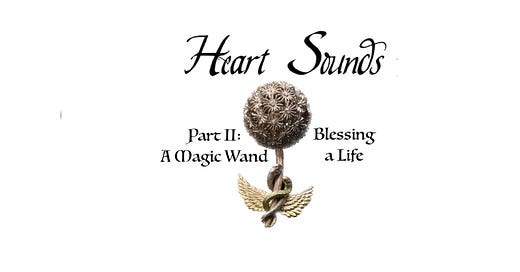Perhaps because it is impossible to know death, it is not part of the general medical curriculum. And even within the specialty of hospice and palliative medicine, becoming comfortable with death is never expected or ever the goal. We can, however, learn to become comfortable with the unknowable. By allowing ourselves to not know, we invite more than honesty, we evoke authenticity. With authenticity comes permission to show up exactly as we are. Curiosity opens our hearts to honor any emotion, granting each of us the ability to share deep empathy in the face of the greatest unknown: our universal shared reality of mortality.
****
It is a late Friday afternoon when I get the call to see a new patient.
“She has specifically requested the support of palliative care, and as she is expected to be discharged tomorrow,” the medical intern hesitates, giving me a chance to finish his sentence, “It’s now or never.”
Pausing in front of Celia Santiago's hospital room door, I roll the chime bell I carry in my pocket between my fingers as I read the handwritten sign, "Please knock before entering." Cool, I think, I love seeing people empowered to express what they need.
I knock.
"One moment please," I hear from the other side of the door. I continue rolling my bell channeling all the angels who, as Zuzu declares at the end of the film, It’s a Wonderful Life, have “gotten their wings” as I wait for permission to enter.
"Okay, you can come in now."
Opening the door to Celia's room is like entering into an alternate dimension. One well outside the walls of the hospital. A colorful red shawl is draped over a desk lamp, giving the room a soft glow. Next to the lamp sits a young woman with her back to me. I can hear the clicking of keys on a laptop.
"Thanks for your patience," she says. Her arms move to lower the computer screen followed by the sound of a metallic click.
Celia slowly turns around. She uses both of her arms to press herself out of her chair and reposition herself cross-legged onto her bed. She then turns her head to the side with her eyes directed toward the closed door. The delicate clear tubing seems purposefully poised, like an artistic embellishment, as it courses its way around Celia’s neck and into her nose. She touches the tip now and again, trying to keep it in place: a new permanent accessory she has yet to fully adopt into her authentically pleasing, non-hospital commission, wardrobe.
"Hello," I say. "I was told you wanted to see me. I am from the palliative care service."
After a moment, she turns to face me, completely at ease, and asks, “Are you the person who is going to help me with my will?”
“No,” I reply somewhat taken aback. “That would take someone legally trained, which I am not.” I am stunned by her frankness.
Celia seems deflated but undaunted.
"Then can you at least talk with me about the things that matter to me at the end of my life?"
My surprise morphs into intense curiosity. I've never encountered such a young person so intent on speaking about her own mortality.
"Certainly," I say.
Keep reading with a 7-day free trial
Subscribe to Dying To Talk to keep reading this post and get 7 days of free access to the full post archives.



